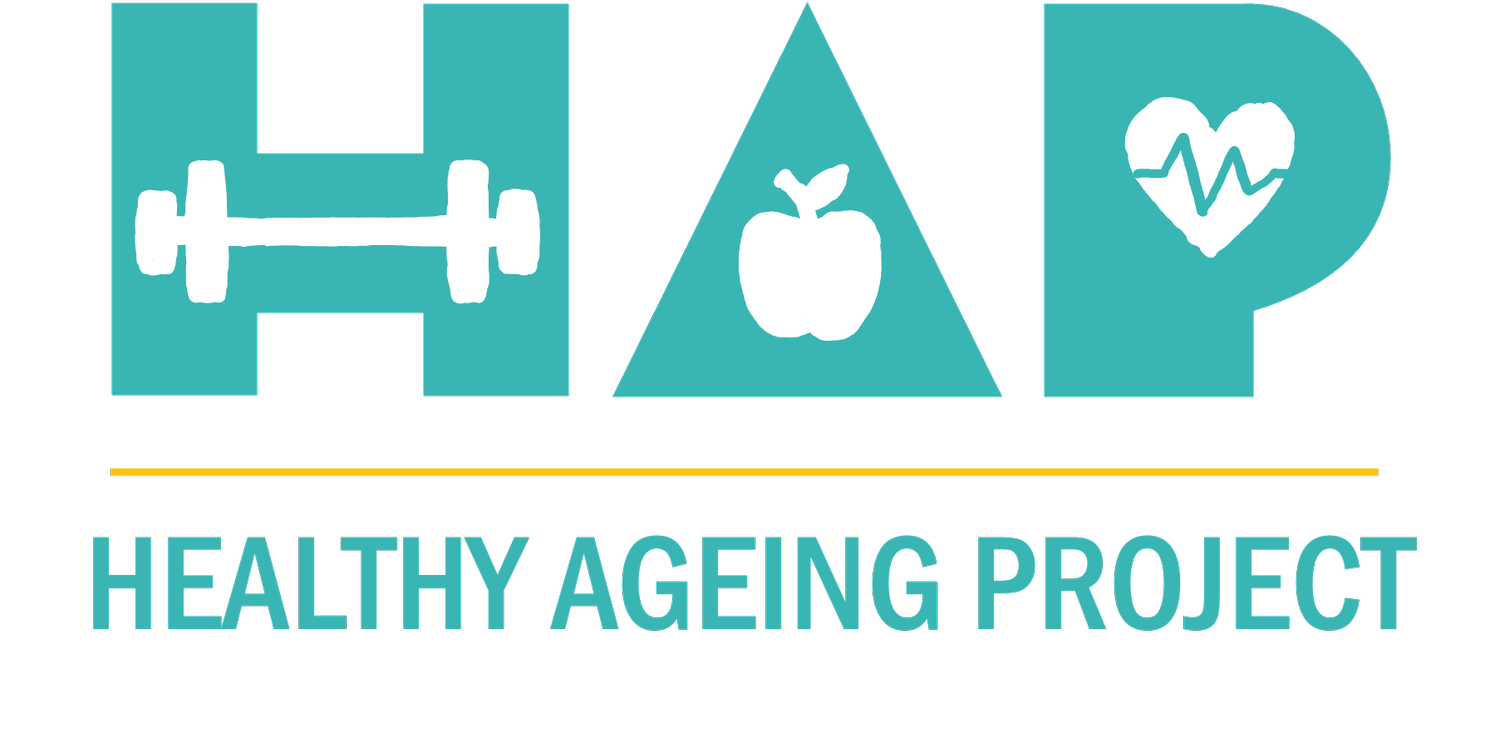Ageing is NOT a dirty word!
A quick story to start. When I commenced my PhD in 2002, an administrative foul-up (my own) meant surviving the first year without a scholarship. Fortunately, my wife was working full-time, so I contributed with casual teaching & a few months of disability support work. One afternoon I was asked to provide two hours of domestic support for a married couple living semi-independently. Sarah & Peter (not their real names) had their fair share of challenges. Sarah was blind & had a chronic health condition. Peter had cerebral palsy. Both were wheelchair users.
At this point I’ll pause to ask…what assumptions have you already made about their life & personal capabilities? What thoughts & feelings are surfacing about their “disability”? Make a mental note. I’ll make sense of it soon.
Never judge a book…
Upon arriving at the house, Sarah opened the door. She was chatty & outgoing, but also full of apologies as she had a university assignment to finish (!!) & wanted to get back to it. As she wheeled herself to the office, I headed for the kitchen & started getting their dinner ready. Shortly after, Peter arrived home. He was an accountant with the tax office & travelled to & from work in a specially modified vehicle. He, like Sarah, was very affable & once she was done with her assignment, we chatted as I continued peeling carrots.
They struck me as two extraordinary people. People with a ‘can-do’ attitude that seemed to render their significant daily challenges much less significant. When their attention turned to me, they quizzed me about my PhD & showed great interest in it. Soon after, Peter uttered some words I will NEVER forget. As I stood there chopping up an onion, he mused with a shaky voice, “So, a PhD, eh? I guess that means you’ve got no practical skills whatsoever!”
They both exploded with laughter. So did I. There I was making their dinner & he’s throwing shade at me! I was clearly in the presence of two characters with the same wicked sense of humour.
After helping them with a few other chores & serving dinner, I left them to their evening. For them, I imagine it was just another day & just another helper. For me, it was a most enjoyable & profound visit.
I share this story because it taught me something important about stereotyping.
On that afternoon, the old adage you can’t judge a book by its cover had never been more true. Of course, this is something we’re reminded of over & over again, but are prone to forget due to our minds’ fondness for mental shortcuts. We categorise things & pigeonhole people. We label them based on minimal information & then use dodgy assumptions to guide how we act towards them. That is, until we get woken up by a Sarah & Peter experience. Or my friend Sally, who’s legally blind & runs half-marathons, but has much grander ambitions!
Is “ageing” a dirty word?
It might not seem like it but this is a blog about age-stereotypes: the beliefs people hold about different age groups & the ageing process. Unsurprisingly, such beliefs tend to be negatively held. Why? Because many of us see ageing as nothing other than the inevitable decline of our physical & mental functioning over time, whilst also conjuring up recognition about our mortality & eventual death.
As these are less than comforting thoughts, we could borrow a line from 1970s glam rock band Skyhooks to say that “ageing” is more of a dirty word than “ego” ever was. But, should ageing be seen in this way? Having pondered this question a lot, I’m not sure why it should be.
If you’re someone who doesn’t like the word “ageing”, it’s possibly because you’ve framed it in terms of personal loss…the loss of strength, loss of mental acuity, loss of vitality, etc. If so, you may also come to believe that significant birthdays (e.g. 50 or 60) act as timestamps that signal “weakness, forgetfulness and/or sluggishness”. All are common age-related stereotypes, in the same way that “damaged, helpless and/or confined” are common disability stereotypes. However, as my experience with Sarah & Peter gloriously illustrated to me, their life made a nonsense of such stereotyping…and I think there are similar things to say about its age-related equivalents.
Stereotype embodiment: Both sides of the coin
Research on age-stereotypes has tended to focus on how age-related beliefs influence behaviour towards others, such as when a young shop assistant speaks slowly & loudly to a grey-haired woman at a check out. In these sorts of scientific studies, the focus is on the shop assistant & how their age beliefs influence behaviour towards the older adult.
However, this is changing. More recent research is examining what happens when cultural stereotypes about age & ageing are turned inwards, leading people to define themselves based on a number (their age). Whilst the technical term for this is stereotype embodiment, I prefer to use self-directed ageism: the limiting beliefs we hold about ourselves based on our age.
The important point is that a person’s lifespan & healthspan are powerfully impacted by these beliefs. According to long-term epidemiological studies, people who hold positive self-perceptions of age & ageing maintain better functional capacity & live up to ~7 years longer than people with negative self-perceptions.
The reasons are not hard to understand. If I approach a significant birthday (e.g. 40, 50 or 60) with the vague feeling I’m getting weaker or slower, the arrival of that birthday may act to legitimise that feeling & establish it as a self-belief. If so, I may begin to assess my options in life through age-tinted glasses, including my physical activity options, such as: “I’d quite like to play netball again but after 20 years it’s probably not wise on 48-year-old knees”.
Use it & keep it!
Whilst it’s true our physical status declines naturally with age, it’s also true that the rate of that decline is mostly self-imposed. Like the neural circuitry in our brains, the same “use it or lose it” principle applies to our physical status. So, how much muscle strength, bone density & aerobic capacity we have is linked to how much we challenge our physiological systems. As it turns out, it doesn’t matter how old we are, when we positively challenge our bodies with (for example) regular yoga, squats or swimming, our bodies are geared to respond in a positive way.
Evidence of this is not hard to find. For example:
MRI studies have shown the musculoskeletal condition of active 70-year-olds can be no different to active 40-year-olds.
World record times for swimming & running reveal that athletes don’t get dramatically slower until they reach ~70 years old.
Impressive fitness levels have long been observed in 70 & 80-year-old adults in traditional hunter-gather communities.
Such evidence is encouraging as indicates people possess an impressive capacity to be physically active well into the 7th, 8th & 9th decades of life. Apparently, if “we use it, we keep it”. It’s a reason why health professionals are now so commonly prescribing regular physical activity for older adults…& everyone else for that matter. After all, health ageing is a lifelong process.
And it’s never too late
However, not everyone will recognise this enduring physical potential in themselves. Whilst people love seeing it in others (think of any 80-year-old marathon runner), too often people seem to get rumbled by self-directed ageism & sell themselves short. I also think this lurks behind one of the most common reasons for not being active: “I’m too busy”.
In my experience, many extremely busy people find a way to prioritise physical activity & not holding self-limiting beliefs based on age seems to be an enabler of that.
One last thing. Back in 1966, a team of researchers at the University of Texas studied the health impacts of subjecting five 20-year-old men to complete bed rest for three weeks. Not surprisingly, they became less fit & healthy, but regained what they lost quite quickly. Here’s the interesting bit. After testing these same man three times over a 40 year period & analysing their data, they found that:
the physical status of the inactive 20-year-olds was similar to their 60-year-old selves (i.e, bed rest equated to 40 years of ageing).
physical training at age 50 improved their health & fitness to pre-bed rest levels (i.e., physical activity reversed 30 years of ageing).
Studies like this suggest that it’s never too late. Whilst we age as all biological beings age, there’s a lot we can do to influence the rate at which we age, irrespective of how old we are!
So, is “ageing” a dirty word? No, I don’t think so. Ageing is just what we do…it’s as simple as that.
info@drgordonspence.com
(+61) 421 641649
© Healthy Ageing Project 2023. All rights reserved.





